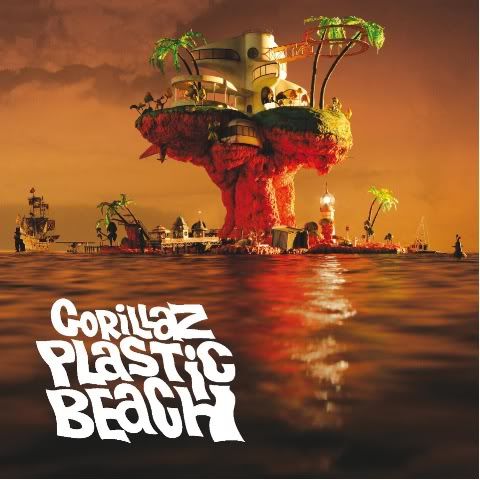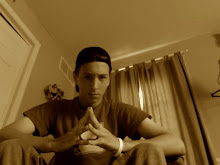I was haunted by the eerie resonance to the world building of Jane Schoenbrun's "I Saw The TV Glow". Which intrigued me even with the trailer for whatever it was. And then I heard a podcast host mention the same weird identification to that director's work, in the atmospheric sense of unfamiliar familiarity to the specificity of the subject. And the host recommended checking out the director's previous film, as it had similar seeds of the most accurate depiction to "the experience of being extremely online".
"I saw the TV Glow" encapsulated being obsessed by a niche piece of media culture at a formative time and how powerful a connection that is to share when you are seen by someone else who shares that exposure. How deep and fragile that bond rests as you explore how it shaped your personality and perspective to where you arrived now. There are people who root their identity to things they saw and admired and wanted to embody for themselves. And when you are rooted in something mainstream, that can be a broader connection to others. But what if your formative experience was to something obscure and fleeting? At best, it might be a pop culture thing that might have a resurgence in niche nostalgia to laugh at it being dated in its time.
But this film, this earlier work by Jane, yeah, I can understand some threads, but this is much more small scale in scope and narrowed vision. While "TV Glow" has a parallel in "Buffy the Vampire Slayer" and other, even more doomed teen TV pilots and shows. "World's Fair" is influenced by "LonelyGirl15" and other niche online video communities and creepypasta forums.
It is a matter of timing for being caught in the wave and riding it down a rabbit hole of specific momentum in tandem with others in a chatroom of private and long distance Marco Polo with a specific password and frequency. For people in this period, they heard about a specific online trend of a "horror role playing game", documented through an uploading an online video of repeating "Wanting to go to the world's Fair" and shedding a small amount of blood while watching a specific video. Something between Bloody Mary/Beetlejuice and The Ring. Then the participants continue to document what changes in their lives over time by performing this ritual.
The main character is in her early teens and rehearses what she is going to do for the ritual at night before going live in her room and filming it. The perspective is from her MacBook camera into her room as a fixed shot. After she turns on the video, the activating video's colors wash over her face, illuminating and shadowing her place in an inconsistent pattern. It is extremely personal and unsettling to be this unfiltered. It is almost a relief to leave the room's fixed camera and see short fixed shots of the suburban town in the dead of fall, at various big box stores at the mall and the road of passing cars. Then a sequence of the main character walking along a fence in a handheld shot before switching to tracking her at a fixed distance behind like a normal walking shot.
Eventually, the camera shows her back in her room as she sets up her camera to take a video of her sleeping at night, trying to document what changes will happen from the ritual. But she can't sleep and starts looking up videos from other accounts who report going to the World's Fair and being changed. One guy is on a treadmill and his video title announces that "I CAN'T FEEL MY BODY", as he runs, he keeps slapping his face and not flinching. The video finished and queues up a follow up in the World's Fair participant playlist, where an attractive girl is smiling and making duck faces at the camera with a title of "I'm turning into plastic" and a description of "I don't know why it feels so good." The main character leaves her room and goes out to the barn, where she lays on a couch and watches an ASMR comfort video with a young lady stroking gently at the camera with long nails telling the viewer softly "You're okay. you can go to bed and have sweet dreams" as the camera changes angled to show the projector perched on a pool table and slowly pans in to the screen to be filled with the ASMR video. The video wraps up, queueing a followup video, one in which the main character, Casey, is featured in a still image from her first video we watched, distorted and with coal black eyes. Discordant music plays, and there is cuts to scrawled text that "You Are In Trouble" and "Please Talk to Me".
Casey gets up and stands in front of the screen. The next morning, she looks up that user and contacts them on Skype. This user goes by the moniker "JLB", is middle aged, and doesn't turn on their camera from showing a ghoulish sketch as a profile icon. They apologize that the video message was unsettling, but they couldn't find a better way to get Casey's attention to respondThere are long pauses in the conversation, as the user mentions that they only talk to serious game players and that there is deep lore and theories of the "World's Fair" and the effect it has on its participants. Casey is told to be careful and that she should contact the user if she has any questions, but to keep making videos to let them know her status in the process of her gradual horrific physical and/or mental metamorphosis.
And so begins a uniquely online and parasocial relationship between Casey as a content creator documenting her life in sporadic updates and JLB as a concerned commenter on the effect this "World's Fair" is having on her. The camera switches to JLB as they wrap up audio response videos and calls to Casey. And they live in an organized and stable large house, JLB seems to have a successful life aside from this niche community. But they are haunted by the rawness of Casey's unstable updates and care about her wellbeing.
The cinematography switches between video blog updates from Casey and other World Fair users who have various body horror elements and bizarre rambling stories of how the Fair changed them and also following Casey and JLB when they are not actively being recorded for content or calls. The lines between paranoia and real life begin to blur and the focus of the frame doesn't let you get grounded in scenes or dialogue outside the tension. There are long lingering scenes where nothing appears to happen and there is no dialogue, forcing the audience to sit and be uncomfortable wondering if there is any significance to a small detail changing our understanding of what is going on here.
The movie feels too personal and voyeuristic, the audience both knows too much about quiet moments and too little about the subjects to know a grounding context for what is true and what is performance here.
But in the final act, where the two main characters have another Skype call, this modern, awkward relationship is attempted to be navigated, with huge blind spots for the uneven nature of the extremely niche exposure they have to each other's lives. It is too accurate and unflinching, to have to witness this encounterto unveil what has been unsaid for so long. But the audience is a third party here and is at an extremely helpless disadvantage to be an active participant and satisfy a curiosity for what was happening and what the outcome of this whole thing could be.
I have spent time on social media, and, through trial and error, learned how to curate a persona which is a faceted extension of my identity, but not everything I am. Because everyone can wear masks in a masquerade and not everyone you meet is your friend. It doesn't do to be careless and risk exposure of your private life which is not for strangers to access. Information assymetry on the level you are willing to be comfortably known by what you reveal to be seen and understood. But this sometimes means I develop a fondness for others I encounter in the space when I am wandering these online environments and I care about their lives. I wish them well in their continued existence, but there is much about them that I know I do not know and should not have an entitlement to access. Some of them become inactive users and I have no way of reestablishing how they are doing. And no one in my offline life can quite comprehend the depth of this loss of an online companion who had amusing thoughts, witty banter, funny jokes, or interesting stories to relate. And I can't explain adequately to my real life friends and family the nature of things, because they were not there in the time and place, they don't have the context of the timing in which you find these people in these communities for a fleeting moment of season. They also can't speedrun an accurate accounting of key moments to understand the dynamic established, because that file can't be compressed like that, something was lost in trying to zip it up neatly for quick file transfer. Unpacking it in full would be likely an effective failure to transmit.
This film was uncomfortably accurate in what was shown and not said. It was universal in the silences to be received by those whose antenna were exposed to those frequencies at some point. Echoing resonance to the awkward memories of knowing this could be either very special and/or an extremely foolish interaction, a mutual ritual of a possible trust fall forward with both parties' eyes wide open to witness, in excruciatingly slow motion, if they will let you be shattered by falling through an illusion to an unforgiving ground of a reality check.


